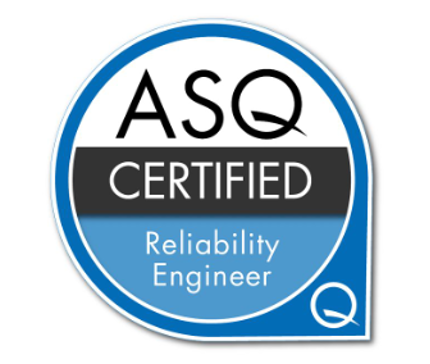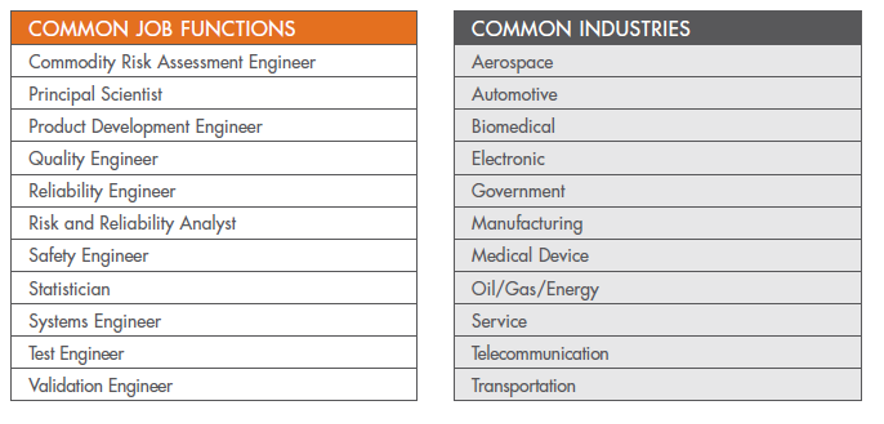
Synchronous Virtual Mode
Inicio: 20 de Mayo 2025
14 sesiones
Martes de 7pm - 10pm
DESCRIPTION:
¿POR QUÉ CONVERTIRSE EN UN INGENIERO DE CONFIABILIDAD CERTIFICADO?
Como ingeniero de confiabilidad certificado (CRE), comprenderá cómo utilizar los principios de evaluación y predicción del rendimiento para mejorar la seguridad, la confiabilidad y la capacidad de mantenimiento del producto/sistema. Las CRE utilizan herramientas de ingeniería, probabilidad, estadística y otras herramientas para garantizar que sus productos y sistemas sean más eficientes y confiables.
¿CUÁLES SON LAS COMPETENCIAS BÁSICAS DE UN CRE?
Una amplia descripción general de los fundamentos de la confiabilidad, incluido el modelado predictivo, el análisis de la causa raíz, el tiempo medio hasta el fallo (MTTF), las acciones correctivas y preventivas (CAPA) y más.
Identificar, analizar y mitigar riesgos utilizando técnicas como el análisis de árbol de fallas (FTA), el análisis de modos de fallas y efectos (FMEA), el análisis de peligros y la necesidad de cambio de diseño.
Analizar, gestionar datos e información utilizando estadísticas de probabilidad para la confiabilidad.
Aplicar la planificación de la confiabilidad, las pruebas (vida útil acelerada, detección de tensiones, etc.) y el modelado (diagramas de bloques de confiabilidad, modelos de fallas, etc.) para informar las opciones de diseño.
Tener enfoque en la confiabilidad del ciclo de vida a través de técnicas de diseño como el análisis de tensión-resistencia, el diseño de experimentos (DOE), el diseño para la confiabilidad (DfR) y las estrategias de mantenibilidad.
¿CUÁL ES EL VALOR PARA TU EMPRESA TENER UN INTEGRANTE CON CONOCIMIENTOS DE CRE?
La ingeniería de confiabilidad óptima puede:
Aumente la vida útil de los productos, reduzca el tiempo de comercialización y mejore el servicio.
Reduzca el tiempo de inactividad del equipo, el costo del ciclo de vida y los costos de falla y garantía.
Determine y corrija las causas de los errores antes de que se produzcan.
Aumente la satisfacción del cliente a través de menos fallas de unidades.
Mejorar la seguridad a través de la reducción de riesgos.
Mantenga la confiabilidad durante la rápida evolución de nuevos materiales, métodos y sistemas complejos

¿CUÁL ES EL VALOR PARA TI ESTAR ENTRENADO Y CERTIFICADO COMO CRE?
Un conjunto de habilidades mejorado lo califica para más puestos dentro del entorno empresarial moderno.
Las CRE ganan $6,969 más en promedio que las que no tienen una certificación.
INFORMACIÓN DEL MERCADO DONDE LABORA UN CRE
TENDENCIAS CLAVE DEL MERCADO DE UN CRE
Existe una demanda de ingenieros de confiabilidad certificados debido al aumento de productos garantizados en todos los mercados.
Cada vez son más las industrias que exigen el cumplimiento de las normas de fiabilidad y seguridad.
